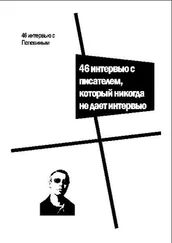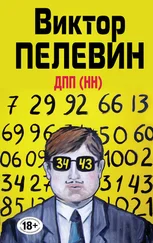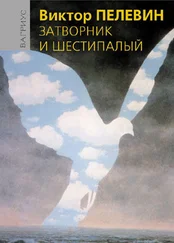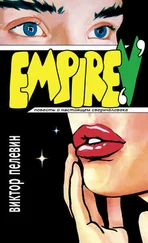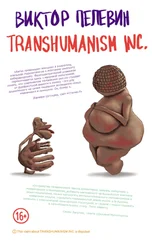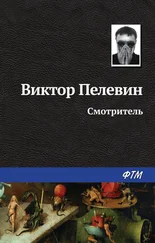Виктор Пелевин - Babylon
Здесь есть возможность читать онлайн «Виктор Пелевин - Babylon» весь текст электронной книги совершенно бесплатно (целиком полную версию без сокращений). В некоторых случаях можно слушать аудио, скачать через торрент в формате fb2 и присутствует краткое содержание. Жанр: Современная проза, на английском языке. Описание произведения, (предисловие) а так же отзывы посетителей доступны на портале библиотеки ЛибКат.
- Название:Babylon
- Автор:
- Жанр:
- Год:неизвестен
- ISBN:нет данных
- Рейтинг книги:5 / 5. Голосов: 1
-
Избранное:Добавить в избранное
- Отзывы:
-
Ваша оценка:
- 100
- 1
- 2
- 3
- 4
- 5
Babylon: краткое содержание, описание и аннотация
Предлагаем к чтению аннотацию, описание, краткое содержание или предисловие (зависит от того, что написал сам автор книги «Babylon»). Если вы не нашли необходимую информацию о книге — напишите в комментариях, мы постараемся отыскать её.
Babylon — читать онлайн бесплатно полную книгу (весь текст) целиком
Ниже представлен текст книги, разбитый по страницам. Система сохранения места последней прочитанной страницы, позволяет с удобством читать онлайн бесплатно книгу «Babylon», без необходимости каждый раз заново искать на чём Вы остановились. Поставьте закладку, и сможете в любой момент перейти на страницу, на которой закончили чтение.
Интервал:
Закладка:
‘Are you telling me the truth?’ Tatarsky asked.
"The truth, cross my heart.’
‘But it’s such a massive scam.’
‘Aagh, no,’ Morkovin said with a grimace, ‘please, not that. By his very nature every politician is just a television broadcast. Even if we do sit a live human being in front of the camera, his speeches are going to be written by a team of speechwriters, his jackets are going to be chosen by a group of stylists, and his decisions are going to be taken by the Interbank Committee. And what if he suddenly has a stroke - are we supposed to set up the whole shebang all over again?’
‘OK, let’s say you’re right,’ said Tatarsky. ‘But how is it possible on such a huge scale?’
‘Are you interested in the technology? I can give you the general outline. First you need a source figure - a wax model or a human being. You use it to model the corporeal cloud. D’you know what a corporeal cloud is?’
‘Isn’t it some kind of astral thing?’
‘No. Some blockheads or other have been feeding you a load of nonsense. A corporeal cloud is the same thing as a digital cloud-form. Just a cloud of points in space. You define it either with a probe or with a laser scanner. Then the points are linked up - you impose a digital grid on them and close up the cracks. That involves a whole bundle of procedures - stitching, clean-up, and so on.’
‘But what do they stitch it up with?’
‘Numbers. They stitch up numbers with other numbers. I don’t understand it all by a long way - I studied the humanities, you know that. Anyway, when we’ve stitched everything up and cleaned it all up, we end up with a model. There are two types - one’s called polygonal, and the other’s called NURBS patch. A polygonal model consists of triangles, and a NURBS - that is ‘non-union rational bi-spline’ - consists of curves. That’s the advanced technology for serious 3-Ds. The Duma dummies are all polygonals - it’s less hassle and it keeps the faces more folksy. So when the model’s ready, you put a skeleton inside it, and that’s digital too. It’s like a set of sticks on ball-joints - on the monitor it actually looks like a skeleton, but without the ribs - and you animate the skeleton like they do for a cartoon film: move an arm this way, move a leg that way. Only we don’t actually do it by hand any more. We have special people who work as skeletons.’
‘Work as skeletons?’
Morkovin glanced at his watch. "They’re shooting right now in studio number 3. Let’s go take a look. It’ll take me all day to try to explain things to you.’
Several minutes later Tatarsky timidly followed Morkovin into a space that resembled the studio of a conceptual artist who has received a large grant for working with plywood. It was a hall two storeys high filled with numerous plywood constructions of various shapes and indefinite function -there were staircases leading into nowhere, incomplete rostrums, plywood surfaces sloping down to the floor at various angles, and even a long plywood limousine. Tatarsky didn’t see any cameras or studio lights, but there were large numbers of mysterious electrical boxes looking like musical equipment heaped up by the wall, and sitting beside them on chairs were four men who seemed to be engineers. Standing on the floor beside them were a half-empty bottle of vodka and a large number of beer cans. One of the engineers, wearing earphones, was staring into a monitor. They waved in friendly greeting to Morkovin, but no one took his attention off his work.
‘Hey, Arkasha,’ the man in the earphones called out. ‘Don’t laugh now, but we’ll have to go again.’
‘What?’ said a hoarse voice somewhere in the centre of the hall.
Turning towards the voice, Tatarsky saw a strange device: a plywood slope like the ones you see in children’s playgrounds, only higher. The sloping surface broke off above a hammock supported on wooden poles, and an aluminium stepladder led up to its summit. A heavy, elderly man with the face of a veteran policeman was sitting on the floor beside the hammock. He was wearing tracksuit trousers and a tee shirt with an inscription in English: ‘Sick my duck’. Tatarsky thought the inscription too sentimental and not quite grammatically correct.
‘You heard, Arkasha. Let’s go for it again.’
‘How many more times?’ Arkasha mumbled. ‘Im getting dizzy.’
‘Try another shot to loosen you up. So far it’s still kind of tight. I mean it; take one.’
‘The last glass hasn’t hit me yet,’ Arkasha replied, getting up off the floor and wandering over to the engineers. Tatarsky noticed there were black plastic discs attached to his wrists, elbows, knees and ankles; and there were more of them on his body - Tatarsky counted fourteen in all.
‘Who’s that?’ he asked in a whisper.
‘That’s Arkady Korzhakov. No, don’t go getting any ideas. Not Yeltsin’s old bodyguard. He’s just got the same name. Works as Yeltsin’s skeleton. Same weight, same dimensions; and he’s an actor, too. Used to do Shakespeare at the Young People’s Theatre.’
‘But what does he do?’
‘You’ll see in a moment. Like some beer?’
Tatarsky nodded. Morkovin brought over two cans of Tuborg. It gave Tatarsky a strange feeling to see the familiar figure in the white shirt on the can - Tuborg man was still wiping the sweat from his forehead in the same old way, afraid of continuing his final journey.
Arkasha downed a glass of vodka and went back to the slope. He scrambled up the slope and stood motionless at the top of the plywood structure.
‘Shall I start?’ he asked.
‘Hang on,’ said the man in the earphones, ‘we’ll just recalibrate.’
Arkasha squatted down on his haunches and took hold of the edge of the plywood surface with his hand, so that he resembled a huge fat pigeon.
‘What are those washers he’s got on him?’ asked Tatarsky.
"Those are sensors,’ replied Morkovin. ‘Motion-capture technology. He wears them at the points where the skeleton has its ball-joints. When Arkasha moves, we record their trajectory. Then we filter it a little bit, superimpose it on the model and the machine works it all out. It’s a new system, called Star Trak. The hottest thing on the market right now. No wires, thirty-two sensors, works anywhere you like, but the price - you can imagine…’
The man in the earphones turned away from the monitor.
‘Ready,’ he said. ‘Right I’ll run through it from the top. First you hug him, then you invite him to walk down, then you stumble. Only when you lower your arm, make it grander, more majestic. And fall flat, full length. Got it?’
‘Got it,’ Arkasha mumbled, and rose carefully to his feet. He was swaying slightly.
‘Let’s go.’
Arkasha turned to his left, opened his arms wide and slowly brought them together in empty space. Tatarsky was amazed at the way his movements were instantly filled with stately grandeur and majestic pomp. At first it put Tatarsky in mind of of Stanislavsky’s system, but then he realised Arkasha was simply having difficulty balancing on such a tiny spot high above the floor and was struggling not to fall. When he opened his arms again, Arkasha gestured expansively for his invisible companion to descend the slope, took a step towards it, swayed on the edge of the plywood precipice and went tumbling clumsily downwards. As he fell he somersaulted twice, and if his heavy frame had not landed in the hammock there would certainly have been broken bones. Having fallen into the hammock, Arkasha carried on lying there, with his arms wrapped round his head. The engineers crowded round the monitor and began arguing about something in quiet voices.
‘What’s it going to be?’ Tatarsky asked.
Without saying a word, Morkovin held out a photograph. Tatarsky saw some kind of hall in the Kremlin with malachite columns and a wide, sweeping marble staircase with a red-carpet-runnner.
Читать дальшеИнтервал:
Закладка:
Похожие книги на «Babylon»
Представляем Вашему вниманию похожие книги на «Babylon» списком для выбора. Мы отобрали схожую по названию и смыслу литературу в надежде предоставить читателям больше вариантов отыскать новые, интересные, ещё непрочитанные произведения.
Обсуждение, отзывы о книге «Babylon» и просто собственные мнения читателей. Оставьте ваши комментарии, напишите, что Вы думаете о произведении, его смысле или главных героях. Укажите что конкретно понравилось, а что нет, и почему Вы так считаете.

